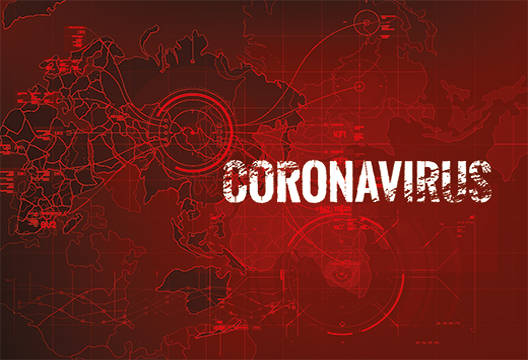The psychology of pandemics
Stephen Reicher, Bishop Wardlaw Professor from the School of Psychology and Neuroscience, writes about two psychologies of relevance to the coronavirus pandemic for the British Psychological Society.
His research focusses on the issues of group behaviour and the individual-social relationship. More specifically, Professor Reicher’s recent research can be grouped into three areas. The first is an attempt to develop a model of crowd action that accounts for both social determination and social change. The second concerns the construction of social categories through language and action. The third concerns political rhetoric and mass mobilisation – especially around the issue of national identity.
This article originally appeared on The Psychologist website on Wednesday 1 April 2020.

There are two psychologies of relevance to the coronavirus pandemic, and which one we choose to guide policy and practice will play a big part in determining how we get through these difficult days and how we come out from them.
The first psychology sees people as fragile rationalists. Our understanding of the world is distorted by multiple biases. We find it hard to handle complex information, to deal with risk and uncertainty. We lack the will to deal with pressure and are liable to fold under threat. And all these tendencies are exacerbated when we come together in groups. Our reason atrophies, our emotions escalate and spread like an infection. We lose control. We act irrationally. We panic.
According to this viewpoint, which developed with the rise of industrialisation and urbanisation and the formation of a mass society, people are the problem in a crisis. At best, they cannot look after themselves. At worst, they exacerbate the original problem through their dysfunctional responses: they strip the shops bare, they demand scarce medical resources that they don’t need, they refuse to abide by measures that are good for them, they squabble and they riot.
The implication of this view is a profound paternalism. Since people are so child-like in a crisis, they need government to look after them. This paternalism is embedded deep in some of the language of crisis management where the ‘first responders’ in an emergency refer to ‘blue light’ agencies such as the police, ambulance or fire services. It implies that government must communicate sparingly and simply lest people are overwhelmed by what they are told. And it even suggests that the measures used to mitigate against a crisis may have to be adjusted to deal with human frailties.
We have seen all these tendencies during the COVID-19 pandemic. But perhaps the last was the most controversial, when strict distancing measures were delayed apparently on the premise that people would soon be ‘fatigued’ and stop observing them. In this way, psychological considerations were put at odds with what medical science demanded, and failure to comply with these demands was explained in terms of psychological considerations.
The second psychology views people in much more constructive terms – constructive in the sense that we don’t distort information but rather create meaning and understanding with the tools available to us, and also constructive in the sense that we are well able to cope with our world, even in crisis. Moreover, in both senses we are more constructive when we come together in groups. We are better able to make sense of our world and better able to cope with the challenges we face in the world when acting with each other as members of a common group than when acting against each other as separate individuals.
The way in which collectivity creates resilience is particularly clear in crises. It is when people think of themselves as ‘we’ rather than ‘I’ that they are most likely to accept measures that optimise the overall fight against coronavirus even if they personally are disadvantaged. And it as a ‘we’ that people are coming together in, in innumerable mutual aid groups at street, town and national levels to give a level of support that the state could never provide. As so often in disasters, the real ‘first responders’ are the people themselves, way before any emergency services can arrive on the scene and the role of the state must be to scaffold, not substitute for that self-help.
This is all very well, you might say, but what then of all the evidence of panic buying, of the madness of those still congregating after lockdown. Certainly, some people may have acted selfishly and against the common good. However recent (unpublished) data suggests that stockpilers are a tiny percentage of the population and the real reason for shortages is the fragile ‘just in time’ supply chains of modern supermarkets. Equally, a large part of the problem of assembly has to do with people being forced to work by employers and having limited options of how to get there.
The main reason for non-compliance is less to do with dysfunctional psychologies than dysfunctional systems and dysfunctional practices. In effect, people are principally failing to comply with distancing measures due to lack of opportunity not lack of reason or willpower, and the response should be to provide more opportunities rather than deride the public.
In sum, then, we have a clear choice: on the one hand, a psychology which is at odds with the medical advice, which is counterposed to systemic interventions and which both disrespects and dismisses those who are best able to respond to this crisis; on the other hand, a psychology focussed on how best to implement the medical advice, which advocates for systemic change that makes optimal behaviours possible, and which harnesses the power of the group to face up to COVID-19.
Never has the contrast between the two psychologies been so stark, the different implications of each so clear, or the consequences of our choice so critical for humanity.
You can read the full article on The Psychologist website.
Professor Stephen Reicher is available for media interviews. All requests should be made via the Press Office in the first instance.